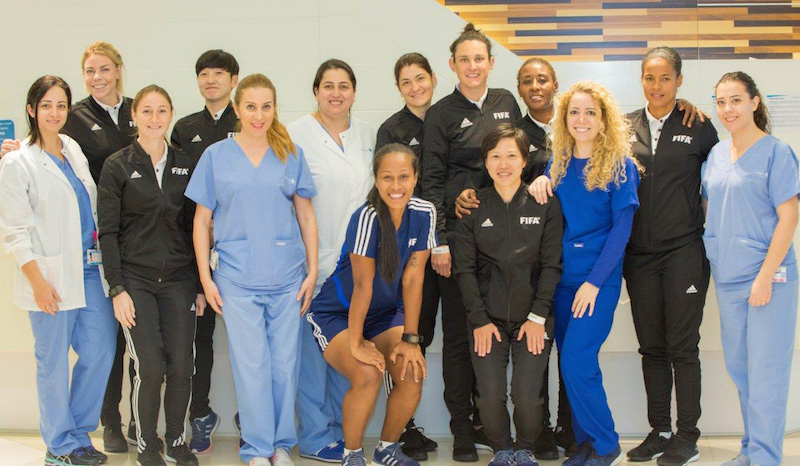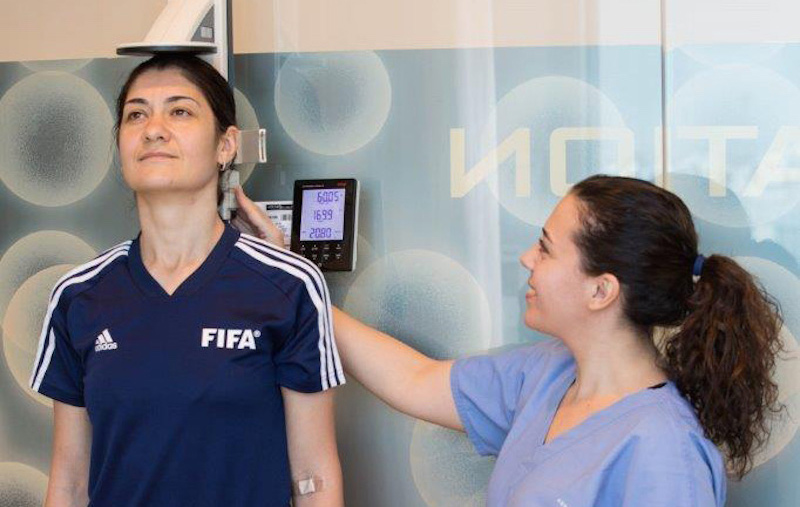FIFA Women’s World Cup France 2019™ Referees Complete Screening Programme At Aspetar
Official referees at the FIFA Women’s World Cup France 2019™ have successfully completed a comprehensive four-hour medical screening session at Aspetar: the Orthopaedic and Sports Medicine Hospital. The referees travelled to Doha to take part in a series of FIFA seminars held in preparation for the upcoming Women’s World Cup which is scheduled to take place at stadiums across France from 7 June to 7 July.
75 people took part, including 27 referees and 48 assistant referees. The medical assessments were specifically tailored to meet the needs of each referee who came from countries like; the USA, Mexico, Ukraine, Korea, Australia, and Rwanda.
The selection process of the referees, who will officiate in the FIFA Women’s World Cup France 2019™, was based on the referee’s fitness level, technical ability, and understanding of football. Therefore the medical screenings at Aspetar were essential.
Internationally renowned former referee Pierluigi Collina, Chairman of the Referees’ Committee at FIFA, accompanied the referees during their stay at Aspetar.
While testing was tailored to each person, a number of components are standardised, such as cardiac screening, a detailed medical and injury questionnaire, laboratory tests, dental assessment, Biodex muscle assessment, physiotherapy functional assessment, spirometry, visual acuity assessment, and general medical and musculoskeletal examinations. All of which was undertaken by an experienced sports medicine physician. A summary report was provided at the end of the assessment with recommendations for any ongoing actions.
Speaking about the medical screenings at Aspetar, a FIFA referee from Australia, Kate Jacewicz, said:
I’m proud to say I’ve been selected to go to the FIFA Women’s World Cup France 2019™. The facilities here are extremely comprehensive. The medical staff here are incredibly professional and knowledgeable – I’ve never had this type of screening before. Referees are considered athletes as we run and play just as the footballers, so it is extremely important that we understand our injuries and our bodies. What I have seen so far in Qatar is a beautiful country with heart-welcoming people and I’m looking forward to discovering more.’
Assistant Referee Julia Magnusson from Sweden added:
Everyone here at Aspetar is so professional. I work at a hospital back home and in comparison, Aspetar is very state-of-the-art, we can see that the hospital here really puts the athlete first. The screenings are essential as it helps to prevent injuries and improve performance. I’m thrilled to witness good service and good quality here in Qatar.’
In February 2018, Aspetar screened candidate referees who took part in the 2018 FIFA World Cup Russia™. Hosting medical screenings stems from Aspetar’s mission to assist athletes to achieve their maximum performance and potential.








